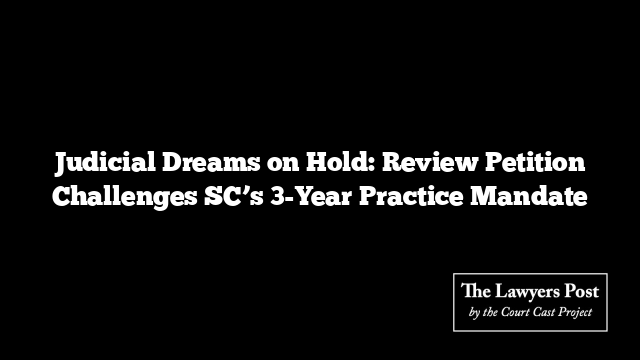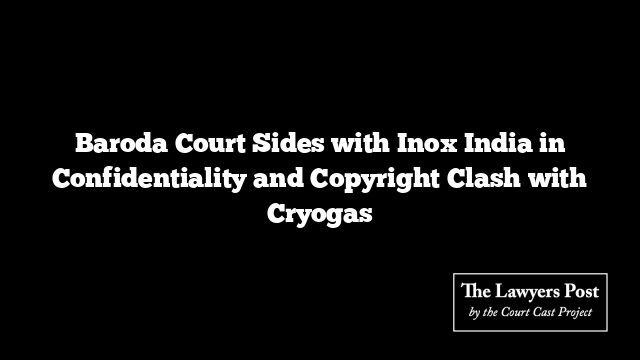The gates to India’s lower judiciary have grown taller—and a fresh challenge now asks the Supreme Court to remeasure them.
A review petition has been filed against the apex court’s judgment in All India Judges Assn. v. Union of India, where it mandated that candidates vying for Civil Judge (Junior Division) roles must log a minimum of three years of courtroom experience before being allowed to compete.
Filed by a Bar Council of Uttar Pradesh–enrolled advocate who also happens to be a judicial service aspirant, the plea argues that the Court’s sweeping rule violates fundamental rights enshrined in Articles 14 and 16 of the Constitution—fairness, equality, and the right to access public employment.
The crux of the complaint? Timing.
The petitioner zeroes in on Direction No. 7 of the judgment, which instructs all High Courts and State Governments to rewrite their service rules, making three years of legal practice a non-negotiable eligibility clause. These candidates must now produce certification of practice either from seasoned advocates or Principal Judicial Officers.
Also folded into this requirement is the Court’s direction that even experience gained while working as a Law Clerk should count toward the three-year threshold. And once selected, successful candidates must undergo a full year of judicial training before sitting behind the bench.
But here’s where the tension erupts: the petitioner—like many others—entered the race based on the rules that existed prior to this judgment. Those graduating between 2023 and 2025 now find themselves stuck in a rule-change time warp. They studied, prepped, and invested years of effort under a different eligibility regime, only to now be told the goalposts have moved.
The review petition seeks a buffer—an implementation date beginning in 2027—so those caught in this sudden policy whiplash aren’t unfairly disqualified. The plea brands the Court’s direction as retrospective in spirit, arguing that it violates the principle of legitimate expectation and inflicts undue hardship on an entire batch of fresh graduates.
At the heart of this legal challenge lies a simple but powerful appeal: reform, yes—but not at the cost of fairness.





